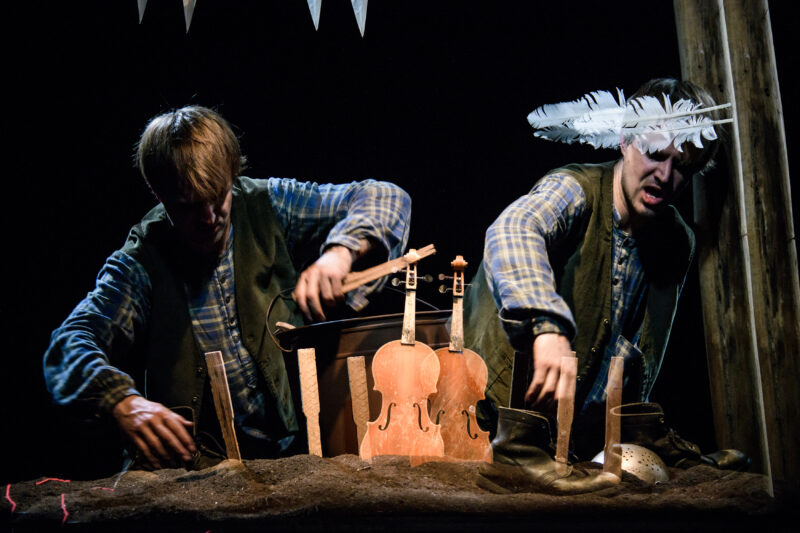SAULĖ DEGUTYTĖ

“Siberian Haiku”. Photo by Laura Vancevičienė
Actress, director, artist, creator of the theatre of objects Saulė Degutytė (b. 1969) attended the pantomime studio of Kęstutis Adomaitis in Kaunas between 1985–1988. In 1989, she acquired the choir conductor qualification at Kaunas J. Gruodis Higher School of Music, followed by a degree in acting from the Lithuanian Academy of Music in 1995. Between 1995-2002, she acted at the Vaidila Theatre and in the performances of the State Youth Theatre, the Žalia varna Theatre (Green Crow Theatre), the Idiotheatre, as well as in TV series and films.
Since 2006, Degutytė works as an art education teacher at the Vilnius special kindergarten Žolynėlis, organises educational projects for children and the disabled, and holds seminars and creative workshops for teachers.
In 2004, Degutytė founded the Stalo Theatre (Table Theatre), where she directed nearly thirty performances. The performances of this theatre are created with the help of various objects, which come to life during the performance, acquiring faces, voices and destinies of characters. This allows for the renewal of the artistic language of the puppet theatre and discovering an authentic connection with the familiar environment. Exclusively live music and a subtle soundtrack accompanying the action are the only aural elements of performances of the Stalo Theatre. In 2014, the performance Tarmių stalas (The Feast of Dialects) created by Degutytė at the Stalo Theatre won the Golden Cross of the Stage.
One of the latest performances created at the Degutytė’s Stalo Theatre is Siberian Haiku (2018) based on the graphic novel of the same title by Jurga Vilė and Lina Itagaki for children from 10 years of age. In this book and performance, the narrator, 10-year-old Algiukas tells the story of how one morning in June 1941, a regiment of soldiers throws him, his sister Dalia, father Roma and mother Uršula from their beds and orders them to prepare for the road – that is how Lithuanians were being deported to Siberia. Why were they being deported? What did they do wrong? Where is Siberia? This is the poignant yet hopeful tale of Siberian Haiku, told trough various objects that come to life and turn into characters in the hands of actor B. Ivanauskas and the melodies of the Obuoliai choir.